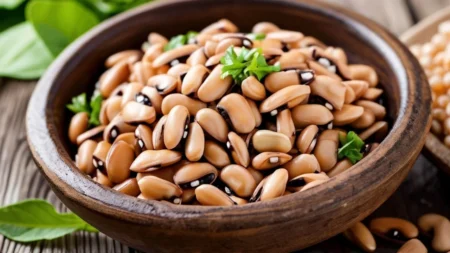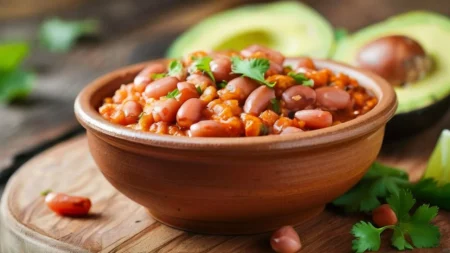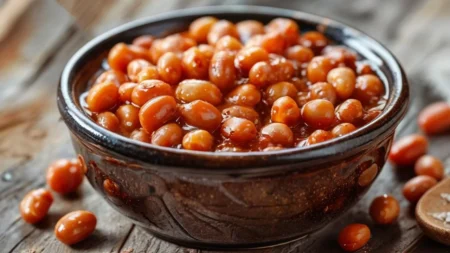Are Raspberries Good for Weight Loss?
Key Takeaways
Raspberries are a low-calorie, nutrient-dense fruit that can aid in weight loss due to their high fiber content, antioxidants, and essential vitamins. Incorporating raspberries into a balanced diet can help individuals manage their weight while enjoying a delicious and versatile fruit.

Introduction to Raspberries and Weight Loss
Raspberries (Rubus idaeus) are a popular berry known for their vibrant color and sweet-tart flavor. They are often celebrated for their health benefits, particularly in the context of weight loss. With increasing obesity rates and related health issues, many people seek effective dietary strategies for weight management. This article explores the nutritional profile of raspberries, their potential benefits for weight loss, and practical ways to incorporate them into a healthy diet.
Nutritional Profile of Raspberries
Macronutrients
Raspberries are primarily composed of carbohydrates, but they are low in calories, making them an excellent choice for those looking to lose weight. Here’s a breakdown of their macronutrient content per 100 grams:
| Nutrient | Amount per 100g |
|---|---|
| Calories | 52 |
| Carbohydrates | 12 grams |
| Dietary Fiber | 6.5 grams |
| Protein | 1.2 grams |
| Fat | 0.7 grams |
Micronutrients
Raspberries are rich in essential vitamins and minerals. A serving of raspberries provides:
- Vitamin C: Important for immune function and skin health.
- Manganese: Plays a role in bone formation and metabolism.
- Vitamin K: Essential for blood clotting and bone health.
The Role of Fiber in Weight Loss
High Fiber Content
One of the key benefits of raspberries is their high fiber content. Fiber is essential for weight loss for several reasons:
- Satiety: High-fiber foods promote a feeling of fullness, which can help reduce overall calorie intake.
- Digestion: Fiber aids in digestion and helps maintain a healthy gut microbiome, contributing to better metabolic health.
- Caloric Density: Foods rich in fiber, like raspberries, tend to be lower in calories while providing a feeling of fullness, making them ideal for weight loss.
Antioxidants and Their Impact on Weight Management
Raspberries are loaded with antioxidants, including anthocyanins and ellagic acid. These compounds have been linked to various health benefits, including:
- Reducing inflammation: Chronic inflammation can hinder weight loss and contribute to obesity-related conditions.
- Improving metabolism: Antioxidants may enhance metabolic processes, making it easier for the body to burn fat.
How to Incorporate Raspberries into Your Diet
Simple and Delicious Ways to Enjoy Raspberries
Raspberries can be easily integrated into a variety of meals and snacks. Here are some creative ideas:
- Smoothies: Blend raspberries with spinach, banana, and Greek yogurt for a nutritious breakfast.
- Salads: Toss fresh raspberries into salads for added flavor and nutrition.
- Yogurt Parfaits: Layer raspberries with low-fat yogurt and granola for a healthy dessert.
- Baked Goods: Add raspberries to oatmeal or baked goods for natural sweetness.
- Sauces and Dressings: Puree raspberries to create flavorful sauces or salad dressings.
Portion Control
While raspberries are low in calories, it’s essential to practice portion control. A typical serving size is about one cup, which provides approximately 65 calories and 8 grams of fiber. This portion can help satisfy cravings while keeping calorie intake in check.
Conclusion
Raspberries are a delicious and nutritious fruit that can support weight loss efforts. Their high fiber content, low-calorie nature, and rich array of vitamins and antioxidants make them an excellent addition to a balanced diet. By incorporating raspberries into meals and snacks, individuals can enjoy their flavor while benefiting from their weight management properties.
FAQ
1. Can I eat raspberries every day for weight loss?
Yes, raspberries can be consumed daily as part of a balanced diet. Their low-calorie and high-fiber content make them an ideal snack.
2. Are frozen raspberries as beneficial as fresh ones?
Yes, frozen raspberries retain most of their nutrients and can be a convenient option when fresh raspberries are not available.
3. How do raspberries compare to other fruits for weight loss?
Raspberries are lower in calories and higher in fiber compared to many other fruits, making them particularly beneficial for weight loss.
4. Can raspberries help curb cravings?
The high fiber content in raspberries can promote satiety, potentially helping to curb cravings for unhealthy snacks.
5. What is the best way to store raspberries?
Store raspberries in the refrigerator and consume them within a few days for optimal freshness. Avoid washing them until just before consumption to prevent mold.










